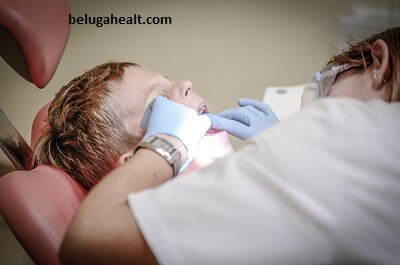Role of Oral Health personnel in Stroke Prevention

Role of Oral Health personnel in Stroke Prevention
Introduction
Oral health is one component of wellness given too little emphasis; however, it prevents a host of systemic conditions and, among others, stroke. Since stroke remains among the biggest contributors to death and disability around the world, knowing the role played by oral health personnel in the prevention of the said condition can go a long way. This article will look into what forms the relationship between oral and stroke, the roles of an oral professional, and some of the most frequently asked questions relating to their contribution to particular approaches to prevention.

Knowledge of Stroke and Its Risk Factors:
What is a Stroke?
A stroke is the interruption of blood flow to part of the brain, hence resulting in the death of the brain cells. There are two major types of stroke:
- Ischemic Stroke: The blockage of one of the blood vessels supplying blood to the brain.
- Hemorrhagic Stroke: This is a result of a burst blood vessel in the brain.
Risk factors of Stroke:
Many risk factors contribute to stroke. These include;
Major Risk Factors for Hypertension include high blood pressure.
Diabetes – Impaired insulin secretion or Insulin resistance, the increased risk of stroke is always a result of poorly controlled diabetes.
- Heart Disease: Patients with atrial fibrillation are at risk due to the potential for developing blood clots.
Overweight conditions are associated with a variety of disorders that are conducive to stroke.
Lifestyle Factors including tobacco use, heavy alcohol consumption, and a sedentary lifestyle are also important contributors.
The Relationship Between Oral Health and Stroke:
A study done recently has established a relationship between oral and stroke. Conditions that lead to poor oral hygiene and periodontal disease give rise to systemic inflammation and the development of atherosclerosis, which causes stroke. The role of all dental care professionals including dentists, hygienists, and assistants is now an important part of the nationwide efforts for the prevention of oral conditions that might ultimately affect the general health status and thereby contribute to the incidence of stroke.
Role of Oral Health Professionals in Stroke Prevention:
1. Early Detection and Treatment of Oral Diseases:
Dental practitioners often are the first to note signs of periodontal disease and other oral conditions that may have a systemic implication. Regular dental checkups facilitate early diagnoses of:
- Gingivitis: Inflammation of the gingiva, which can progress to periodontitis.
- Periodontitis: Chronic infection of the gums that may lead to severe deterioration of the soft tissue supporting the bone, and ultimately the bone itself.
In the care of these conditions, oral professionals provide the avenue for inflammation reduction and reduce atherosclerosis risk; stroke risk declines.
2. Education and Counseling:
As practicing oral health professionals, there is an avenue to enlighten the patient on oral hygiene and how it goes with health in general. Some take-home messages are
Smoking is hazardous and increases atherosclerosis risk. Daily oral hygiene practices ensure the prevention of gum diseases through brushing twice a day, flossing frequently, and use of mouth rinsing.
- Dietary Decisions: A healthy diet full of fruits, vegetables, and whole grains promotes healthy oral and overall health.
- Smoking Cessation: Both smoking cessation aids and quitting smoking altogether can dramatically lower the chances of having a stroke.
3. Interprofessional Collaboration:
The oral health providers can interrelate with medical providers to provide the patient with a holistic approach to stroke prevention. Such an interprofessional collaboration can include:
- Public Health: Dentists or dental hygienists can notify a physician of an important source of information regarding a patient’s oral health and systemic diseases.
- Referral of Patients: If a dentist identifies risk factors like high blood pressure or diabetes, they can refer patients to proper medical care for further management.
- Multidisciplinary Health Teams: Interdisciplinary health teams help develop comprehensive care plans where oral health would be merged with systemic health.

4. Research and Advocacy:
Oral health personnel can engage in research to uncover the relationship between oral health and stroke. In light of advancing public health initiatives aimed at preventing stroke, oral health personnel can work on policy-strengthening endeavors that educate the public on oral health.
What are the qualifications of oral health personnel regarding stroke prevention?
Any sort of dental care provider typically consists of dentists, hygienists, and dental assistants. Oral health care professionals such as dentists need a degree of Doctor of Dental Surgery (DDS) or Doctor of Dental Medicine (DMD) and dental hygienists often possess an associate’s degree in dental hygiene. All oral professionals should be informed through training programs about systemic issues, including stroke risk factors.
How does poor oral health contribute to the risk of stroke?
Poor oral, especially periodontal disease, leads to systemic inflammation. Inflammation may lead to atherosclerosis, such as in the case where arteries become narrowed due to plaque buildup. Atherosclerosis prevents proper blood flow to the brain; thus, the risk of stroke is also elevated.
What specific practices relate to oral health and diminish the risk of stroke?
Maintain good oral hygiene by following at least one or two of the following:
- Brush teeth with fluoride toothpaste twice daily.
- Daily removal of plaque from between the teeth by flossing.
- Regular visitations for professional cleaning and early detection of oral diseases.
- Avoidance of smoking products and decreased alcohol use.
1. How do oral health professionals diagnose susceptible patients for stroke?
Oral health professionals can diagnose a patient as having susceptibility to stroke by:
- Patient’s medical histories evaluate for the presence of conditions such as hypertension, diabetes, and heart disease.
- Presence of signs of periodontal disease that may suggest systemic inflammation.
- Discuss lifestyle risk factors with patients, such as smoking and diet.
2. What is the patient education role in stroke prevention?
Patient education is important as a variable in the education of systemic diseases, such as stroke, that correlate with oral. The oral provider has the role of updating the patient on preventive measures and regular visits and impacts through lifestyle modifications.
3. What role for oral health care in collaboration with other health care providers?
Oral health professionals can collaborate in terms of:
- Sharing patient health information which may alter the general health
- Providing services within a multidisciplinary team managing the holistic needs of patients
- Referring patients to medical providers for conditions that require additional attention.
4. Does your oral health setting participate in any community outreach events on stroke prevention?
Yes, many communities carry out outreach programs that combine oral with stroke prevention. Programs may include free dental screening, training workshops, and action with the regional organizations to enhance awareness of systemic diseases and the relationship they have with oral health.
How can one contribute to oral health and hence prevent stroke?
Oral hygiene:
- People can contribute to their oral by practicing good oral hygiene in their homes and through regular dental check-ups.
- Seeking a doctor about diseases like high blood pressure and diabetes.
- Healthy living, for instance, through proper dieting and exercising.
Conclusion:
More than ever, oral personnel roles are being recognized in stroke prevention, especially as determinants that maximize overall and prevent strokes. Early detection and management of diseases, education and counseling, consultancy with care providers, and advocacy for oral all contribute to helping prevent stroke scenarios through these professionals.
As the links between oral and systemic diseases become more clearly elucidated, oral will be merged with a more encompassing public program. Recognizing the critical role that oral personnel play will foster healthier communities and help reduce the incidence of stroke, thus improving the quality of life for individuals and families.

Oral health investment transcends a beautiful smile; it is profoundly an important contribution with immense potential to improve preventive care and outcomes. Moving forward, then, becomes crucial in promoting and empowering oral professionals to become key players in stroke prevention and promotion overall.
